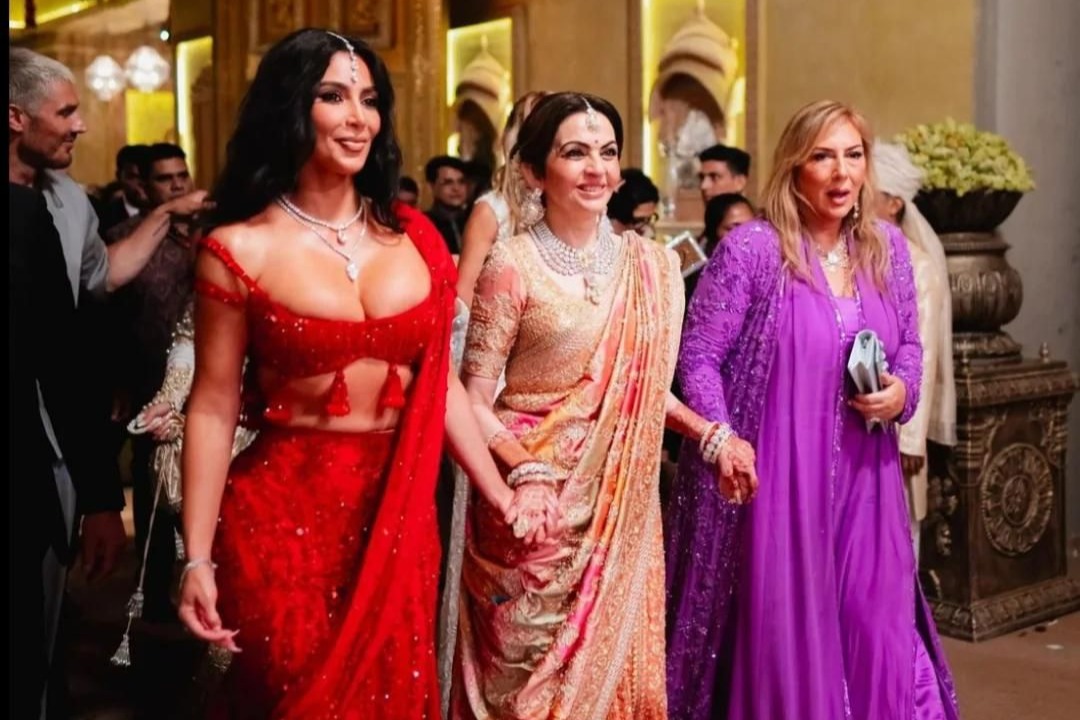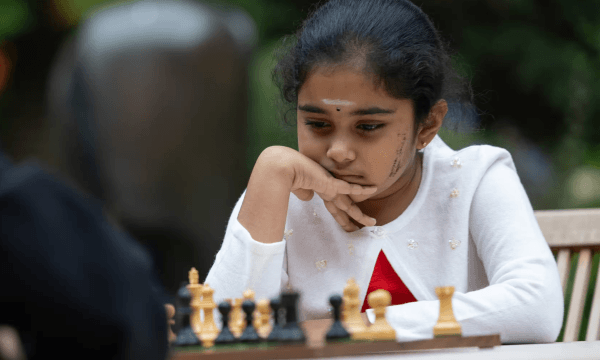
The wedding of billionaire heir Anant Abani to Radhika Merchant has been the talk of social media and celebrity news for the past few months. With a supposedly $500 million price tag and everyone from Bill Gates, Drake, Narendra Modi and Nick Jonas on the guest list, the wedding has stirred both praise and controversy for its extraordinary opulence.
Meet your match! Join myTamilDate and meet Tamil singles from Canada, USA, UK & more.
Indian weddings are typically grand celebrations, as anyone from the South Asian community can attest to. The average Indian wedding can cost anywhere between 30K to 100K USD. Many supporters of the Ambani wedding’s grandeur point out that the scale of the wedding, while out of reach for most in society, should not be over-analysed; as one of the richest families in the world, the Ambanis have money to put towards such a spectacle, and are entitled to do so. The chief criticism of the wedding is that its massive budget is tone-deaf and irresponsible in a country with such a stark divide between rich and poor, and where a large number of people live in extreme poverty. Whether justified or not, a noteworthy motive for the lavish wedding that is making rounds in the media is that the wedding is an attempt to showcase India’s growing international cultural and economic power, and court western audiences.
Is this accurate? Is it working?
 Tamil Innovators: Mugunthan Siva on Finding Success by Investing in India "Our latest Tamil Innovators Spotlight features Mugunthan Siva, Co-founder & Managing Director of India Avenue, which provides investment solutions to investors seeking to access India's strongly growing capital markets. He is based in Sydney, Australia and has spent most of his working career in Australia’s finance industry working for financial planning, stockbroking and superannuation funds. Siva’s flagship fund, the India Avenue Equity Fund, returned 51.90 per cent over 2021, and the team has just completed a $9 million raise for his second fund, the India 2030 Fund, which will hold between 15 and 20 high-conviction stocks." TamilCulture.com
Tamil Innovators: Mugunthan Siva on Finding Success by Investing in India "Our latest Tamil Innovators Spotlight features Mugunthan Siva, Co-founder & Managing Director of India Avenue, which provides investment solutions to investors seeking to access India's strongly growing capital markets. He is based in Sydney, Australia and has spent most of his working career in Australia’s finance industry working for financial planning, stockbroking and superannuation funds. Siva’s flagship fund, the India Avenue Equity Fund, returned 51.90 per cent over 2021, and the team has just completed a $9 million raise for his second fund, the India 2030 Fund, which will hold between 15 and 20 high-conviction stocks." TamilCulture.com On the surface, there are definite indications that the wedding is not just a celebration of the couple. Anant Ambani’s siblings' weddings were significantly more toned down, and no other billionaire has thrown such a massive event in recent memory. The guest list is also notable for its assortment of every big name imaginable. Alongside dozens of Indian celebrities and politicians, the list includes retired politicians like Stephen Harper and Tony Blair, reality stars like Kim Kardashian, professional wrestler John Cena, FIFA president Gianni Infantino, Adobe CEO Shantanu Narayen, and Samsung chairman Jay Lee. The inclusion of such a large number of individuals who are strangers to the family is widely seen as an attempt to showcase the family’s wealth and influence.
Seeing these celebrities sporting elegant lehengas and sherwanis has definitely brought an eye to Indian traditional clothing and fashion, and in many ways can be seen as a projection of Indian culture to the world. Projecting power through culture is not new. For example, the Korean Wave that saw the rise of K-pop groups like BTS, Korean dramas and fashion in the last decade has expanded knowledge of and interest in South Korean culture among western audiences. Similarly, the British royal weddings and coronations that have occurred in the last few years are cultural spectacles that draw viewers into the pageantry of the royal family, and are an opportunity for English culture and ceremonies to be displayed to the world.
Many have pointed out that as one of the richest families in the world, it is not the Ambani family that needs to project power or appeal to international celebrities; it is the celebrities that benefit from the business opportunities that come with mingling with an even more elite community of billionaires. But it is very clearly a mutually beneficial relationship, as the family no doubt benefits as well from expanding its reach to a massive pool of successful and wealthy people who can be a source of opportunity and collaborations. If the wedding truly is motivated, in part, by a desire to increase the family’s prestige, it has definitely achieved some level of success. On the individual level, curiosity about the family has definitely increased in recent months (I had not heard of the Ambani name until last month). Media has spent weeks pouring over the star-studded guest list, outfits and grandiosity. Those who did not appreciate the business potential that exists in this part of the world are sure to take note now, while those who are hating on the family for the wedding’s excessiveness are simply adding to their publicity.
However, if the wedding is also an attempt to project soft power on a national level, there are a few considerations that make this effort fall short. The limelight and media attention brought to the Ambani family through their spectacular wedding will be brief; to be successful, soft power projection requires consistency, much like the non-stop output of bands and brands from South Korea or the continuous efforts made by the British royal family to draw in attention and stay relevant. Once the wedding has ended, the media hype will die down and people will go back to their daily lives. The cultural and social impacts of the wedding will also be temporary for these same reasons.
There’s no doubt that the wedding can be both praised and criticised. I definitely wouldn’t mind the opportunity to take in such a spectacle; on the other hand, seeing Nita Ambani walked out by Kim Kardashian felt tacky. But who is anyone to say that the family shouldn’t be celebrating their success and showcasing their accomplishments? From a power projection perspective, however, I don’t believe the wedding will give the country any more clout or sway on the world stage than it already possesses. Maybe the wedding is just the first part of a larger strategy? Time will tell.
myTamilDate Success Story: It Was Love At First Sight For Madhu & Niya
myTamilDate Love Story: Jenani & Nav Found Each Other At The Right Time And Right Place In Life
myTamilDate.com Love Story: Tharshi & Ravi Found Love During Lockdown

























